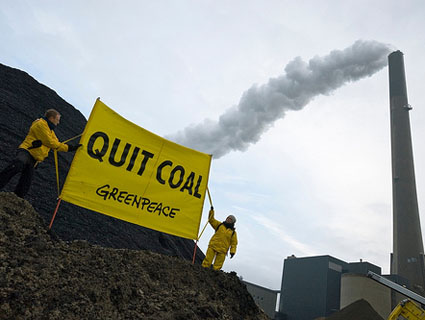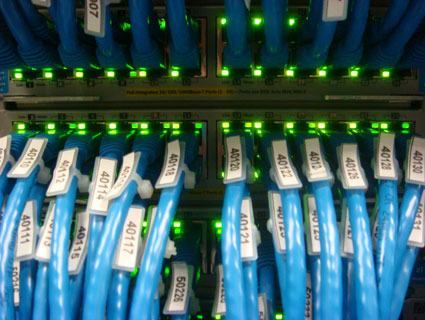
<a href="http://www.flickr.com/photos/ekkaia/3082853134/">ecotist</a>Flickr
Green-minded procrastinators everywhere rejoiced last week when Facebook agreed to move away from coal towards clean energy-powered data centers. The announcement came on the heels of a two-year Greenpeace campaign that mobilized a reported 700,000 supporters to exhort the company to “Unfriend Coal.”
On the surface, this seems like great news. As internet use has exploded in recent years, it’s been accompanied by huge growth in energy consumption and carbon emissions (though it’s not quite as bad as you might expect). But details on how exactly Facebook plans to shrink its environmental footprint are hard to come by. Tzeporah Berman, co-Director of Greenpeace’s International Climate and Energy Program, told me that the coal-reduction strategy would focus on the areas where Facebook’s data centers are located, in Prineville, Oregon and Rutherford County, North Carolina, where Facebook and Greenpeace will work with local utilities to improve the data centers’ supply of clean energy. Michael Kirkland, a communications manager at Facebook, also said that a preference for clean energy sources would be a part of the company’s policy in finding sites for new data centers going forward, but wouldn’t say whether Facebook is willing to actually, you know, spend more money to achieve it, or how long it will take.
In its statement on the Greenpeace agreement Facebook also promised “ongoing research into energy efficiency,” but it didn’t go into much detail on that, either, though Kirkland did tell me that much of Facebook’s research is aimed at finding and implementing more efficient practices within the company—not necessarily at reducing the company’s overall energy consumption.
Until Facebook and Greenpeace hammer out some more specific plans, which Berman says they’ll start to do early next year, it’s hard to know how much impact Facebook’s promises will have. And actually, we probably won’t know the full story of Facebook’s energy use until after the company’s long-awaited IPO. (This lack of transparency is particularly frustrating considering how much information Facebook asks its users to pony up.) So while I’d like feel great about the time I spend staying up-to-date on the latest adventures of my high school friend’s cat, I guess I won’t rationalize away the hours I spend on Facebook as clean and green just yet.















